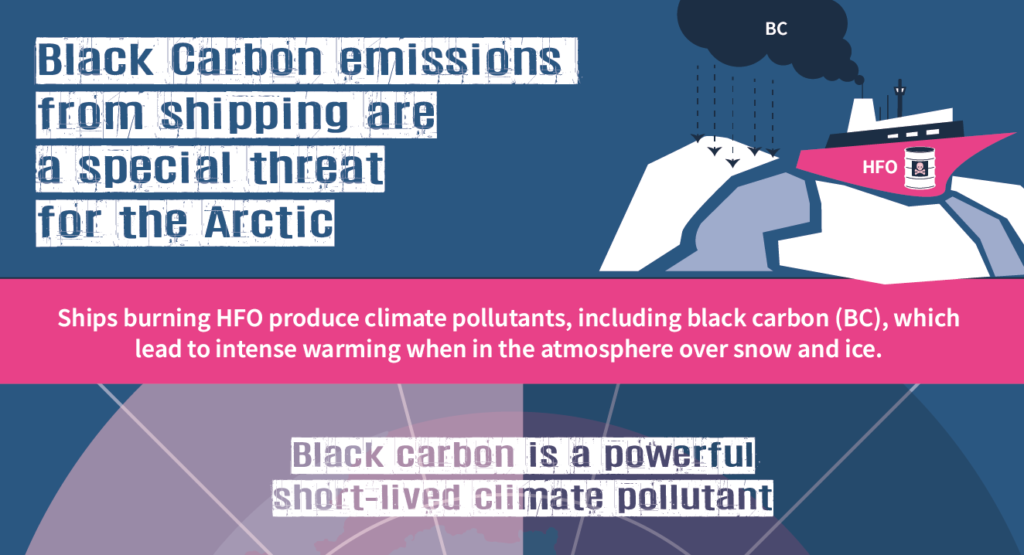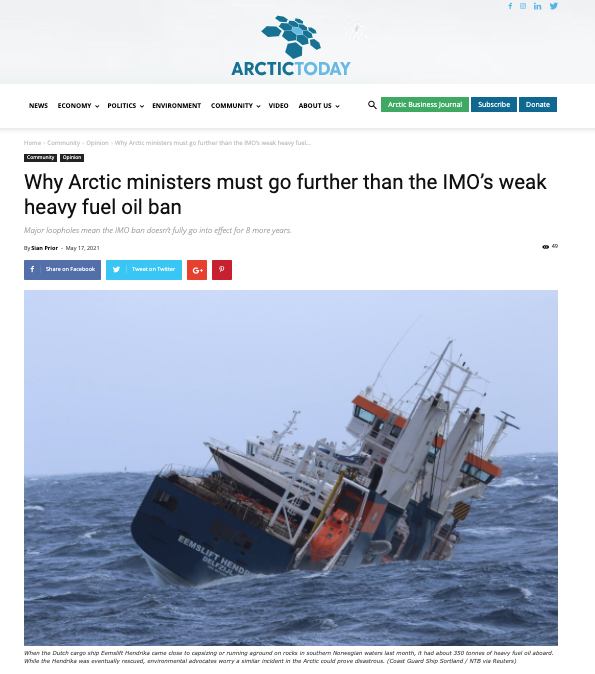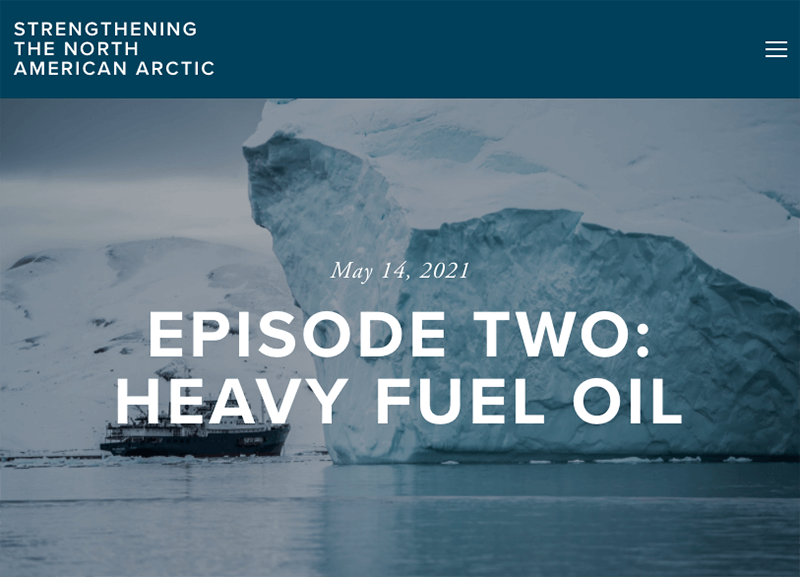Arctic Council Misses Chance to Address Black Carbon Emissions from Shipping

NGOs note Arctic Council’s greater focus on black carbon but upbraid it on failure to commit to reduce black carbon emissions from Arctic shipping
Arctic Today: Why Arctic ministers must go further than the IMO’s weak heavy fuel oil ban

The Arctic Council Ministerial provides a unique opportunity for foreign ministers to demonstrate global leadership by committing to rapid, Arctic-wide elimination of heavy fuel oil, and to immediate reduction in black carbon emissions from shipping. These commitments can be enshrined in the 2021 Reykjavik Declaration, to be issued at the conclusion of the meeting.
Why Arctic ministers must go further than the IMO’s weak heavy fuel oil ban

The Arctic Council Ministerial provides a unique opportunity for foreign ministers to demonstrate global leadership by committing to rapid, Arctic-wide elimination of heavy fuel oil, and to immediate reduction in black carbon emissions from shipping. These commitments can be enshrined in the 2021 Reykjavik Declaration, to be issued at the conclusion of the meeting.
Arctic 360 Podcast: Breaking the Ice – heavy fuel oil

Heavy fuel oil is thick and has a tar-like consistency. That makes spills involving it a major environmental concern. HFO is commonly used to fuel shipping vessels, including in Arctic waters. However, the International Maritime Organization has recently approved a ban on HFO in the Arctic to take effect after July 1, 2024.

